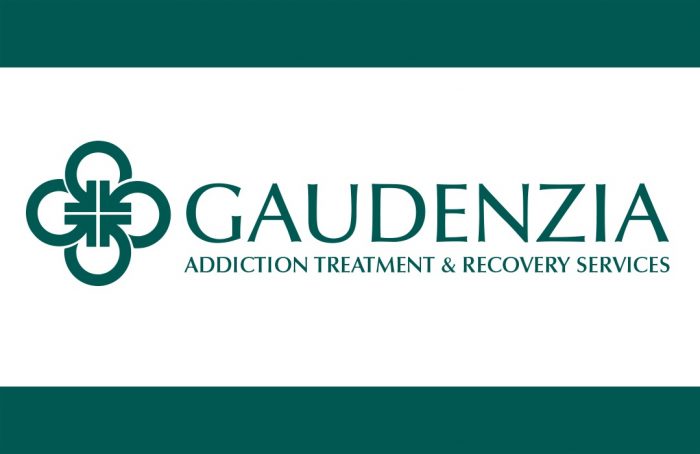Trauma-Informed Care
RCPA Member Gaudenzia Strengthens Operational, Clinical, and Research Capacity Amid Nonprofit Challenges
Dual Diagnosis Professional Conference Series on FASD Support September 18
AID in PA Accepting TRAIN Applications Fall 2025
Autistic and intellectually disabled people are at increased risk of being victimized and experiencing trauma; however, few therapists are skilled in both supporting these communities and providing trauma-focused care. To bridge this gap, psychologists with the ASERT team created the TRAIN program — 12 weeks of self-guided learning and live webinars for mental health therapists licensed in Pennsylvania who are currently working with autistic and/or intellectually disabled adults. TRAIN is an integrative and neuro-affirming approach to trauma-focused care with neurodivergent adults, centering clinical work with the autistic and intellectually disabled communities. After completing the 12 weeks of learning, participants have the option to continue their training through clinical consultation with the developers of TRAIN.
This program covers:
- Trauma-focused mental healthcare;
- Types and prevalence of trauma;
- Expressions of trauma;
- Neurodiversity and Neuro-affirming practices;
- Navigating disclosures of abuse and ethical considerations of reporting abuse and neglect of dependent adults;
- Assessing trauma and using trauma-focused interviews;
- Trauma-focused and neuro-affirming psychoeducation;
- Trauma response and nervous system regulation strategies;
- Trauma processing techniques; and
- Resiliency and therapist self-preservation.
Target Audience: This program was developed for therapists, counselors, and clinical social workers who already have experience working with clients who have an Intellectual Disability/Autism (ID/A) diagnosis and are looking to gain knowledge and skills related to trauma therapy. Therapists who do not have experience with ID/A clients are also welcome to participate, but the expectation is they would be committed to taking such clients into their practice after completing the program, as the purpose is to build capacity in this area across the state. You must currently be licensed and provide 1:1 talk therapy sessions to adult clients at the moment to qualify for this course and participate in the case consultation presentations.
Course Structure: 12 weeks in total, comprised of 3 modules that are each 4 weeks long. The first three weeks are self-paced learning courses that are assigned through the online Learning Management System. The fourth week of each module is an hour-and-a-half interactive discussion with the other group members and instructors. These live sessions are required and are held from 9:00 am – 10:30 am on the following dates:
- September9: Pre-TRAIN Live Session
- October 14: M1 Live Session
- November 11: M2 Live Session
- December 9: M2 Live Session
- January 13, 2026: Weekly Case Consultation Calls (8:00 am – 9:00 am, Tuesdays). This will continue until everyone presents twice.
Case Consultations: After the initial 12 weeks, there is a short break followed by a second 12-week session that consists of weekly one-hour case consultations. These are optional but highly recommended. Each participant is expected to present a case from a current patient and receive feedback/information from other participants and the instructors. Participants need to join at least 6 of the 12 weekly case consultation calls, although it is encouraged to attend all of them. If you are not currently seeing patients or are not in the capacity to present any cases, this may not be the right program for you.
Cost and CE Credits: It is free to participate. 13.5 continuing Education (CE) credits are provided through the National Board for Certified Counselors (NBCC) upon completion of the program.
If you believe this program is appropriate for you and can commit to the requirements, please complete this survey by Wednesday, August 27, 2025. This will be on a first-come, first-serve basis, so don’t delay! Also, if you are unable participate this Fall due to other commitments but would still be interested in doing it for Spring 2026, please say so in the survey.
Empowered Living Through ECHO: Enhancing Healthcare for the Adult Neurodiverse Community in PA
OCYF Shares May 2025 Trauma Tip Sheet
Trauma-informed care in the Office of Children, Youth and Families (OCYF) has emphasized the importance of trauma-informed approaches in providing technical assistance, training, policy, guidance, support, and monitoring procedures. OCYF has developed and collected many trauma tools and resources that may be helpful for child welfare stakeholders and providers as they proceed on their trauma-informed care continuum, such as their monthly Trauma Tip Sheet.
In the January 2025 Trauma Tip Sheet, the US Surgeon General’s Framework for Workplace Mental Health & Wellbeing was introduced, and different topics have been explored in the following months. The May 2025 Trauma Tip Sheet highlights the topic of “Mattering at Work,” and can be read here.
Contact RCPA Policy Associate Emma Sharp with any questions.
RCPA Member Children’s Crisis Treatment Center to Host Advocacy Event “Creating Cultures of Growth and Healing”
Positive Approaches Journal Vol. 13, Issue 4 Released
The Intersection of Mental and Physical Health Impacting our Communities: Part 1
The Office of Developmental Programs (ODP) and the Office of Mental Health and Substance Abuse Services (OMHSAS) are pleased to announce the latest edition of the Positive Approaches Journal.
This issue of the Positive Approaches Journal looks at topics related to challenges around maintaining and supporting both physical and mental health, as well as information on resources. This issue looks at the shortage of both primary health and mental health care professionals, and the five primary health conditions that can significantly elevate the risk of severe illness and death in individuals with ID/A. Other topics include: supporting the nutritional needs of individuals with autism, utilizing a public health approach to address wellness for individuals who have encountered trauma, and supporting individuals and their families who have survived suicide.
This issue of Positive Approaches Journal is in digital form, available for viewing online or for downloading. To print a copy of the PDF, online journal, or a specific article, you will find these options within your left navigation bar on any Positive Approaches Journal page. A new window will open with your selected document. In your browser, you may click the Print button in the top left corner of the page, or by using the Print capability within your browser.
Please submit feedback regarding your experience with the Positive Approaches Journal on MyODP by selecting the feedback image on MyODP within your left navigation bar on any Positive Approaches Journal page.
The Positive Approaches Journal is published quarterly. For additional information, please contact ODP Training’s inbox.
Children’s Mental Health Webinar Series “Healing From the Inside Out” on March 20
AID in PA Accepting TRAIN Applications
AID In PA is accepting applicants for its April 2025 TRAIN program. This free training program was developed for therapists, counselors, and clinical social workers who already have experience working with clients who have an Intellectual Disability and/or Autism (ID/A) diagnosis and are looking to gain knowledge and skills related to trauma therapy.
Individuals with intellectual disabilities or autism are at an increased risk of experiencing trauma. TRAIN is an integrative and neuro-affirming approach to trauma-focused care with neurodivergent adults, centering clinical work with the ID/A communities. After completing the 12 weeks of learning, participants have the option to continue their training through clinical consultation with the developers of TRAIN. You must currently be licensed and provide 1:1 talk therapy sessions to qualify for this course and participate in the case consultation presentations.
The TRAIN program focuses on:
- Trauma-focused mental healthcare
- Types and prevalence of trauma
- Ethical principles of reporting abuse
- Neurodiversity and Neuro-affirming practices
- Expressions of trauma
- Assessing trauma and trauma-focused interviews
- Trauma-focused and neuro-affirming psychoeducation
- Trauma response management strategies and nervous system regulation strategies
- Trauma processing techniques
- Resiliency and therapist self-preservation
Course Structure:
12 weeks in total, comprised of 3 modules that are each 4 weeks long. The first three weeks are self-paced learning courses that are assigned through AID in PA’s online Learning Management System. The fourth week of each module is an hour and a half interactive discussion with the other group members and instructors. These live sessions are required and are held from 9:00 am – 10:30 am on the following dates:
- April 8: Pre-training live session
- May 13: Module 1 live session
- June 10: Module 2 live session
- July 8: Module 3 live session
- August 5: Weekly Case Consultation Calls (8:00 am – 9:00 am, Tuesdays)*
*This will continue until everyone presents twice.
Case Consultations:
After the initial 12 weeks there is a short break followed by a second 12-week session that consists of weekly one-hour case consultations. These are optional but highly recommended. Each participant is expected to present a case from a current patient and receive feedback/information from other participants and the instructors. Participants need to join at least 6 of the 12 weekly case consultation calls, although it’s encouraged to attend all. If you are not currently seeing patients or are not in a capacity to present any cases, this may not be the right program for you.
Cost and CE Credits:
It is free to participate. 13.5 Continuing Education (CE) credits are provided through the National Board for Certified Counselors (NBCC) upon completion of the program.
If you believe this program is appropriate for you and can commit to the requirements, please complete this survey by March 20, 2025. First come, first serve basis, so don’t delay! If you cannot attend the Spring session due to other commitments but would still be interested in doing it for Fall 2025, please say so in the survey.
















